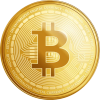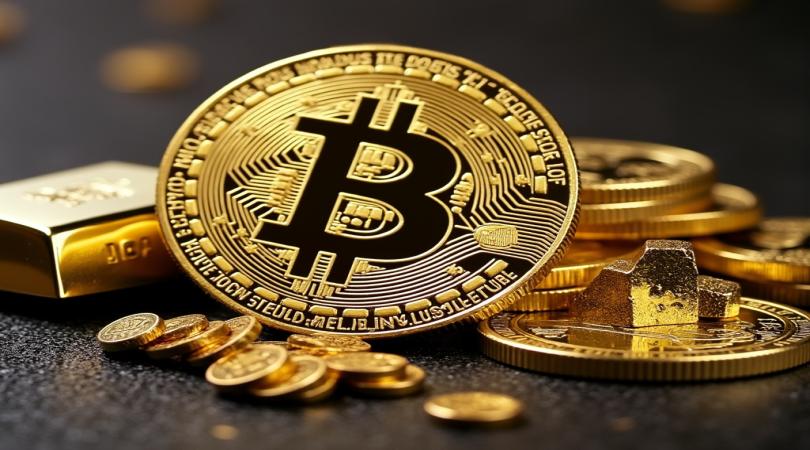

 20 Aug
20 Aug
The comparison between Bitcoin and gold has become a hot topic among investors, economists, and enthusiasts. As Bitcoin's price skyrocketed and gained mainstream attention, many began to refer to it as "digital gold." But what does this comparison truly mean, and is Bitcoin a suitable substitute for gold? In this blog post, we'll delve into the similarities and differences between Bitcoin and gold, the arguments for and against the "digital gold" label, and what the future might hold for both assets.
Gold has been a valuable commodity for thousands of years. It has served as a medium of exchange, a unit of account, and a store of value. Throughout history, gold has maintained its worth during economic upheavals, making it a trusted asset for safeguarding wealth. Its physical properties—durability, divisibility, and portability—contribute to its longstanding status as a safe haven.
Scarcity: Gold is a finite resource, with mining becoming increasingly difficult and costly as easily accessible deposits are exhausted.
Tangible Asset: Gold is a physical commodity that can be held and stored, offering a sense of security to many investors.
Inflation Hedge: Historically, gold has acted as a hedge against inflation, maintaining its purchasing power when fiat currencies lose value.
Universal Acceptance: Gold has a long-established global market and is recognized across cultures, making it a universally accepted asset.
Launched in 2009 by the pseudonymous Satoshi Nakamoto, Bitcoin introduced a decentralized digital currency based on blockchain technology. Initially seen as a novel experiment, Bitcoin's potential for value storage and transfer quickly garnered attention, leading to its meteoric rise in popularity and price.
Scarcity: Similar to gold, Bitcoin is limited in supply, capped at 21 million coins. This scarcity is built into its code and is one of the core features that attract investors.
Digital Asset: Unlike gold, Bitcoin is entirely digital, existing on a blockchain without a physical form. This allows for quick and seamless transactions, making it easier to transfer value across borders.
Inflation Hedge: Many proponents argue that Bitcoin serves as a hedge against inflation, particularly in an era of quantitative easing and increasing money supply.
Growing Acceptance: Over the past decade, Bitcoin has gained traction as a legitimate asset class, with increasing institutional interest and acceptance in various sectors.
Both gold and Bitcoin are scarce resources. Gold mining is constrained by geological and economic factors, while Bitcoin's supply is limited by its algorithm. This scarcity creates an environment where both assets can potentially retain value over time.
Both assets are viewed as stores of value, providing a hedge against economic instability. Investors often turn to gold during times of crisis, and a growing number are considering Bitcoin for the same reasons.
Gold’s value is not dependent on any single government or institution, similar to how Bitcoin operates independently of central banks. This decentralized nature appeals to those wary of traditional financial systems.
Both assets can attract speculative investment. While gold’s price can fluctuate based on market sentiment, Bitcoin’s volatility is often even more pronounced, with rapid price changes creating opportunities for traders.
The most apparent difference is that gold is a physical commodity, while Bitcoin exists solely in digital form. This distinction can influence how investors perceive the security and value of each asset. For some, the tangible nature of gold provides a sense of stability that Bitcoin lacks.
Gold has a long-established market and is recognized globally, while Bitcoin is still relatively young and evolving. The infrastructure supporting gold—from storage facilities to regulatory frameworks—has been built over centuries, whereas Bitcoin is still in the process of developing its ecosystem.
Bitcoin is significantly more volatile than gold. While gold prices can fluctuate, Bitcoin's price swings are often extreme, driven by speculation, market sentiment, and news events. This volatility can deter conservative investors who prefer the stability that gold offers.
Gold has various uses beyond investment, including applications in electronics, jewelry, and dentistry. Bitcoin, while primarily viewed as a store of value, also offers unique functionalities, such as smart contracts and decentralized finance (DeFi) applications.
The growing interest from institutional investors lends credibility to Bitcoin as a legitimate asset class. Companies like MicroStrategy and Tesla have invested heavily in Bitcoin, viewing it as a long-term store of value.
As governments print money in response to economic crises, many investors are turning to Bitcoin as a safeguard against currency devaluation. This perception has led to Bitcoin being referred to as "digital gold" by several high-profile figures.
Bitcoin's unique characteristics and potential for high returns have made it an appealing option for diversification. Many investors consider adding Bitcoin to their portfolios to hedge against economic uncertainty and market volatility.
The digital age has prompted a cultural shift in how we perceive value. As younger generations become increasingly comfortable with digital assets, Bitcoin’s appeal as a "digital gold" could strengthen.
Bitcoin's extreme volatility raises concerns about its viability as a store of value. While it has gained substantial value over the years, its price fluctuations can undermine its status as a stable asset comparable to gold.
The regulatory environment surrounding Bitcoin is still uncertain. Governments around the world are grappling with how to handle cryptocurrencies, and any unfavorable regulations could negatively impact Bitcoin’s value and adoption.
Gold has been a trusted store of value for millennia, whereas Bitcoin is still in its infancy. The long-term durability of Bitcoin as a hedge against economic instability remains to be seen.
As a digital asset, Bitcoin faces potential risks associated with technology, including hacking, loss of access to wallets, and regulatory compliance issues. These risks can deter conservative investors who prefer the security that comes with a tangible asset like gold.
The future of Bitcoin and gold is likely to be shaped by evolving market dynamics, technological advancements, and societal shifts. Rather than viewing Bitcoin as a direct replacement for gold, many experts suggest considering them as complementary assets in a diversified portfolio.
Investors may find value in holding both gold and Bitcoin, leveraging the unique strengths of each asset. While gold provides stability and a historical track record, Bitcoin offers the potential for high returns and diversification.
As Bitcoin continues to integrate into the traditional financial ecosystem, its role may evolve. The development of Bitcoin-backed financial products, such as ETFs and derivatives, could further legitimize it as a mainstream asset.
As society becomes increasingly digital, the acceptance of assets like Bitcoin may grow. This cultural shift could drive more investors to consider Bitcoin as a viable alternative to traditional stores of value like gold.
The debate over whether Bitcoin is "digital gold" is multifaceted and complex. While there are compelling arguments for and against this comparison, it ultimately depends on individual perspectives and investment strategies. Bitcoin and gold each possess unique characteristics that can appeal to different types of investors.
As the financial landscape continues to evolve, both assets are likely to play important roles in how we think about value, investment, and wealth preservation. Rather than viewing them in opposition, embracing the strengths of both Bitcoin and gold may provide a more balanced approach to navigating the future of finance. In a world where technology and tradition collide, understanding the nuances of these assets will be key to making informed financial decisions.